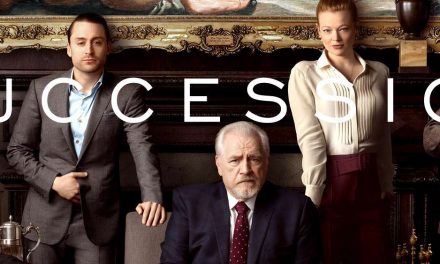The older I get, and the more societies, cultures and (increasingly-authoritarian) governments I encounter, the more I think about Blakes 7 (BBC, 1978-1981).
There is no actual apostrophe in the title, implying, perhaps, the German possessive rather than the English and tying the oppressive, totalitarian dystopia seen in the series back to the Nazis, a common point of reference in the works of Terry Nation.[1] For those unfamiliar with the series, it follows a group of criminals led/inspired by revolutionary, Roj Blake (Gareth Thomas) in his fight against the totalitarian and all-around dystopian Federation represented by the aristocratic Supreme Commander Servalan (Jacqueline Pearce)[2] and her subordinate Commander Travis (Stephen Greif/Brian Croucher) until Travis dies in 2.13. After Blake goes missing in 2.13, computer expert/white-collar criminal Kerr Avon (Paul Darrow) takes over as leader, initially searching for Blake/wandering about the galaxy for a bit in series three. By series four, Avon and the crew have gone back to attempting a revolution and, after an accidentally false denunciation in 4.13 by pilot Del Tarrant (Steven Pacey), Avon kills Blake, the Federation stormtroopers enter and then kill(?) everyone else.
In the late 70s and early 80s, Auntie Beeb’s sf/fantasy was primarily targeted at (and sometimes derided for being for) a family audience, with Doctor Who (1963-present, ish) being the example par excellence. B7, however, was decidedly not that. While the Doctor was an anti-establishment antihero (for sufficient values of both terms), he generally defeats the baddies, protects (most) of his companions and allies and generally is shown as a force for (vaguely defined) good. The DW baddies themselves, with a handful of exceptions, rarely had much depth and tended toward the unsympathetic during its contemporaneous run (though that has since changed). B7, though, while certainly imperfect, went in a very different direction. Though Blake’s accusation of paedophilia (shown on a screen in 1.1) was false, he and the rest of the crew of their initial ship, the Liberator,[3] were often self-centred and working at cross-purposes with each other. More than that, however, the series portrays the mental health problems of several characters which are directly caused and/or exacerbated by the stress of resistance. Master thief Vila (Michael Keating) develops alcoholism to go with his kleptomania over all four series while Avon has a slow, yet severe, breakdown over the course of series 3 and 4, culminating in the final break in 4.13 after erroneously believing that Blake had betrayed him.[4] Blake himself is despondent in 2.6 over his failure to find and destroy Control, the Federation’s central computer system, in the previous episode which led to the death of their comrade Gan (David Jackson) while Travis, it is strongly implied, was unstable due to a combination of untreated PTSD from an attack led by Blake which led to Travis being badly wounded, as well as some sort of punishment/’reconstruction’ done to him by Servalan between series 1 and 2.[5] Thus the series illustrates a number of complex topics and deals with them head-on rather than via analogy. These include totalitarianism/authoritarianism, colonialism and its connection to the aristocracy (as the Federation treats many of its planets like colonies, plundering their natural resources and oppressing the locals) and mental health problems such as addiction and breakdowns in characters who analogise to soldiers or veterans (Samuels, 2018 on the perception of instability/danger of veterans). While such issues are not dealt with in as much depth as might be ideal (or might be the case in contemporary television, e.g., post 2005 Doctor Who), the complexity of these issues is underscored by the fact that it is the heteroglossic antiheroes who lose again and again, exacerbating the damage. This itself is reminiscent of the portrayals of American veterans dealing with their experiences in the Vietnam War (Lee, 2021: 162 on PTSD and the desire to re-enter combat situations) and veterans of other colonial wars as well as the seeming futility of social advancement under the British class system, all of which was within living memory, if not contemporaneous with the families at whom the series was targeted..
What is particularly relevant about all this is that this series is positioned both in terms of its scheduling and its promotion at the time of production, as something suitable for family viewing. Lindtner and Dahl (2018), looking at the Norwegian series SKAM, argue that the series positions and ‘builds’ young audiences as citizens; while B7 is less straightforward in its goals it does seem to fulfil a similar function. Though hardly ‘edutainment’, it clearly illustrates the twin points Stein makes:
Sarah Gwenllian Jones and Roberta Pearson both argue that it is the exotic, imaginative dimensions of fantasy that spur fan creativity by opening a wide variety of possibilities for re-imagining the source text. In contrast, Teen TV encourages fan engagement because of its emphasis on limitations rather than options; Teen TV’s ongoing focus [is] on defining oneself in the face of external restrictions or expectations… (Stein, 2008: 225).
I would argue here that we can include the adaptation or application of the source text onto real life, i.e., that the audience uses a similar creative function to effectively map the diegetically shown mechanisms of authoritarianism and mental health problems onto similar aspects of real life, allowing for recognition even without direct lived experience. B7 also features constant diegetic sociocultural limitations and the fight against them, here expressed as a totalitarian government whose aristocratic elites are bent on total control of the rest of the populace; though the characters are all adults, each frequently ends up having to redefine themselves in the face of new contexts with varying levels of success. This allows for the adolescent and teenaged audience to identify with the adult characters in what, to them, would be an unfamiliar governmental system but which their parents or older relatives would have at least second-hand knowledge of from colonial and/or the Vietnam wars. In turn, this would enhance the creativity which, I argue, would allow for the adaptation of the source text onto real-life situations allowing for recognition by these younger audiences.
Utilising multiple levels of address for multiple audiences is neither new nor confined to ‘family’ viewing. In this case, however, it is functioning to educate younger viewers about the dangers and mechanisms of totalitarianism/authoritarianism and how to recognise a dystopia when it occurs. In addition, it even illustrates the damage done to both the oppressors and oppressed; understanding that ‘monsters’ are made rather than born and, as such, can be prevented and/or can be anyone is a key point. Servalan in particular is given depth, not only through 4.9, in which she is shown to have been abandoned by an older lover (who had, unbeknownst to her, died), but in 2.5, in which she and Travis capture a rebel leader, Kasabi (Jane Sherwin), who had once been a senior political officer at Space Command who taught officer cadets. As a ‘bright young cadet,’ Servalan denounced Kasabi for teaching ‘treason’ – presumably democracy and/or some form of freedom – but Kasabi managed to escape. Servalan captures and interrogates her, leading to Kasabi calling Servalan ‘a credit to your background. Spoilt, idle, vicious. My confidential assessment listed her as unfit for command, but I forgot how well-connected she was.’ Kasabi then connects this to the Federation being ‘degenerate, run by creatures like her’ and later reiterates that Servalan is ‘vicious, greedy, sick.’ Thus, class and elite support of power is being explicitly critiqued here, but it is qualified, treated as a form of illness rather than an intrinsic character weakness. Ultimately and unsurprisingly, after a lengthy interrogation by Servalan and Travis, Servalan kills her through the application of an overdose of some sort of truth serum. Before she dies, however, Kasabi says ‘Servalan, I’m sorry. […] I should have tried, in the beginning. I should have tried to help you.’
When Kasabi apologises here, her focus is on her inability to help Servalan to throw off the reins of her own aristocratic pro-totalitarian upbringing to help her avoid becoming so corrupted. Between this and 4.9 the audience are able to recognise that the ‘villains’ could have easily been heroes, just as Blake, Vila and Avon’s respective psychological injuries can lead them from antiheroism into self-destruction and even near-villainy in Avon’s case (4.11). This encourages empathy from the audience via the parasocial relationships developed over viewing the series as well as functioning as a cautionary tale about creeping totalitarianism and/or authoritarianism for those too young to remember World War II or too young to understand the more recent devastations of British colonialism. It shows young and older audiences alike the damage that can be done to all by such systems. But perhaps most importantly, the series shows that education and educators are the key to helping those under (threat of) such systems to recognise what is happening and, as Kasabi regrets not doing, helping thwart such totalitarian/authoritarian discourses in even the most entrenched of the elites whenever we can. Lord Reith wanted the BBC to inform, educate and entertain. In B7, we have all three aspects of that mandate represented and targeted at a multi-generational audience. While sf/fantasy can be enjoyed by those of all ages, maybe Auntie Beeb was onto something in this case.
Dr Melissa Beattie is a recovering Classicist who was awarded a PhD in Theatre, Film and TV Studies from Aberystwyth University where she studied Torchwood and national identity through fan/audience research as well as textual analysis. She has published and presented several papers relating to transnational television, audience research and/or national identity. She is suddenly an independent scholar. She has worked at universities in the US, Korea, Pakistan, Armenia, Ethiopia and for a brief time in Cambodia. She can be contacted at tritogeneia@aol.com.
Footnotes
[1] Nation, of course, having invented the genocidal Daleks for Doctor Who. That ‘далеко’ means ‘far away’ in Russian can tie them to totalitarianism and WWII/Stalin as well, but I digress…
[2] After series three, Servalan, who is supposed to be dead, goes by the name ‘Commissioner Sleer’ and trades her usual white costuming for black.
[3] The ship was destroyed in 3.13 as the production believed the series was to be cancelled. Series four features the crew on a new vessel, Scorpio.
[4] Thus illustrating the importance of source criticism.
[5] This was, however, primarily to explain the casting change from Greif in series one to Croucher in series two.
References
Lee J (2021). Post-traumatic stress disorder in the films Taxi Driver and You Were Never Really Here: A comparative progressive approach. In Jones M and Olson C J (eds). Normalizing Mental Illness and Neurodiversity in Entertainment Media: Quieting the Madness. London: Routledge, pp. 162-176.
Lindtner S S and Dahl J M (2018). Aligning adolescents to the public sphere: The teen serial Skam and democratic aesthetic. Javnost – The Public, pp. 1-16.
Samuels E (2017). Prosthetic heroes: Curing disabled veterans in Iron Man 3 and beyond. In Ellcessor E and Kirkpatrick B (eds). Disability Media Studies. NY: NYU Press, pp. 129-151.
Stein L E (2008). Pushing at the margins: Teenage angst in teen TV and audience response. In Ross S M and Stein L E (eds). Teen Television: Essays on Programming and Fandom. Jefferson, NC: McFarland, pp. 224-243.





